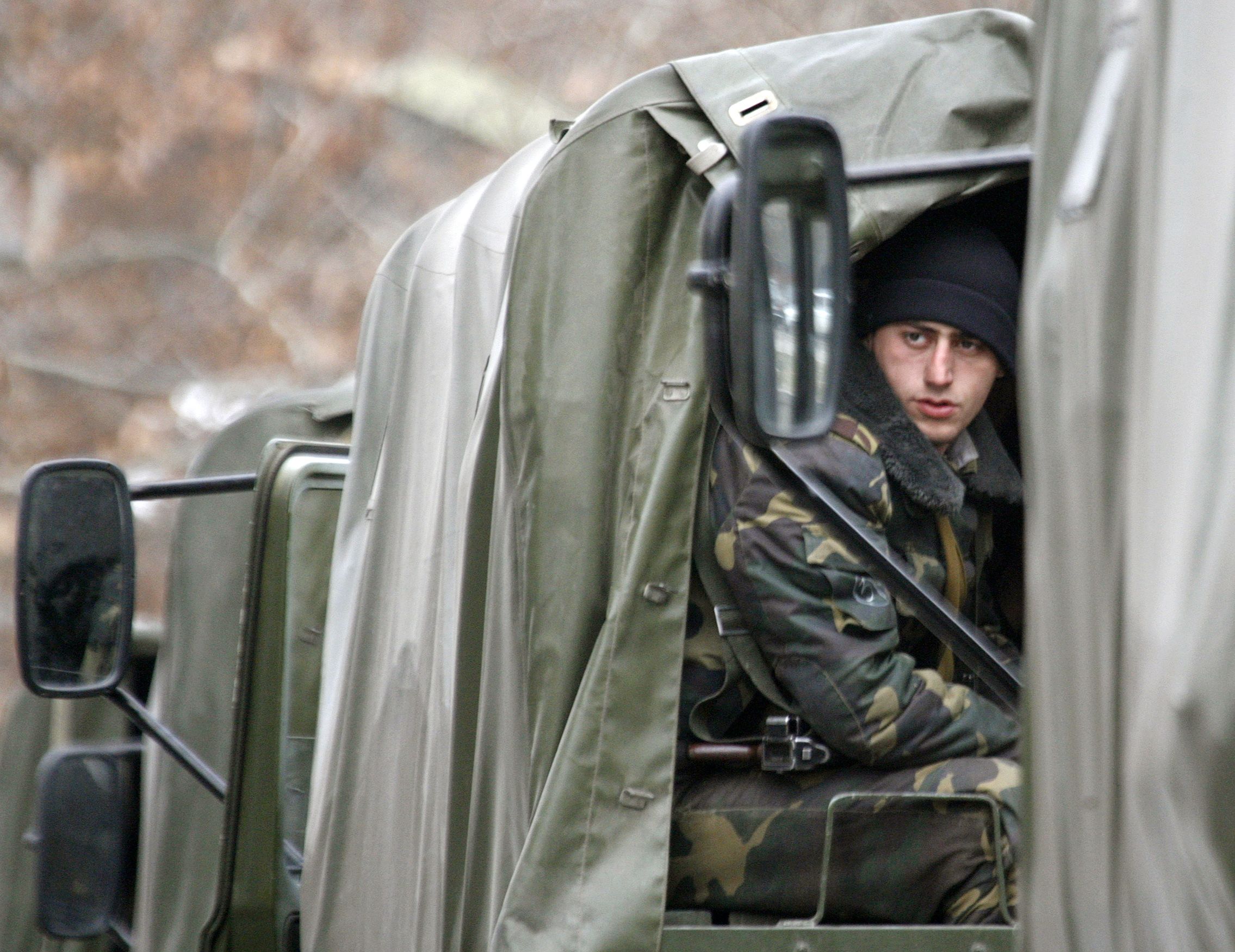
A resurgence of fighting between Armenian and Azerbaijani troops over the disputed region of Nagorno-Karabakh has led to analysts warning of escalating hostilities and even an "accidental war" between the two countries. They also indicate that Russia could use the conflict as a way to consolidate power in the region.
Two Armenian and Azerbaijani soldiers and one Armenian civilian have been killed this month alone, and it is thought that at least a dozen have been killed in the conflict since the start of the new year.
Nagorno-Karabakh is a landlocked mountainous region, and is the subject of a two-decade long conflict between Azerbaijan, in whose territory the region lies, and its predominantly Armenian community.
Officially, active hostilities ended in 1994 when a ceasefire was reached, but skirmishes along the border have been a common feature of the conflict since then. However, experts are now warning that this year's developments have been much worse than usual with increased casualties, both civilian and military, sustained on both sides. Some reports estimate ceasefire violations stand at around 5,000 for January—the highest monthly figure since the truce.
Richard Giragosian, the director of the Regional Studies Center (RSC), an independent thinktank in Armenia, told Newsweek that he is "increasingly concerned of a war by accident, based on small skirmishes spiralling out of control" and says that both sides could be "rushing headlong into a dangerous situation." He argues that the number of casualties is very unusual given the topography and the terrain, with fighting usually confined to the summer. He also expects a much bigger surge in fighting over the coming months.
Giragosian describes how opposing forces on the frontline have come much closer to each other in terms of physical proximity than at any time since the truce, and that the battle space has also expanded, with Azerbaijan attacking Armenia proper, and not just the Nagorno-Karabakh border.
Both sides have been much more willing to use arms in the last few months, and as frustrations about the stalling peace process have increased, an arms race has escalated, mainly instigated by Azerbaijan, according to Giragosian. Armenia and Azerbaijan are among the 10 countries with the highest levels of militarisation in the world, a 2014 study found.
Russia is the main supplier of arms to both sides and, with the ongoing crisis between Russian-backed separatists and the Ukrainian military as well as Russia's reportedly aggressive occupational policy against Georgia, experts are concerned that Putin is considering a bolder and much riskier move to consolidate power in the region.
Giragosian explains that "The one wildcard in this situation is Russia. For Russia, the status quo is best: no peace, no war. But Putin may be tempted by a risky move to provoke fighting to deploy peacekeepers in order to ensure leverage. Events in Ukraine prove that Moscow lacks a rational actor."
At the same time, rumours have been circulating in the Azerbaijani press that the U.S. is funding the Nagorno-Karabakh regime, fuelled by a powerful Armenian-American lobby. Newsweek cannot substantiate these claims but Giragosian says that American funding was provided in the past and has been suspended for the past two fiscal years because of an inability to oversee the expenditure.
John Macleod, of the London-based Institute for War and Peace Reporting, says: "Things are particularly bad and there have been more incidents at the moment. There is always the danger that one country will overstep the mark and it will spread like wildfire and there will be war before you know it."
"We don't exactly know what Russia's interests or the implications of its involvement are. But the Russians are an increasingly pro active regional player and harbour territorial interests for sure." Macleod believes it is "feasible" that Russia would send "peacekeeping" troops to the region under the pretence of bolstering its sphere of influence.
Civilians on both sides are also increasingly getting caught up in the violence, with the Armenian press reporting several casualties, including the case of a young man who last year wandered into Azerbaijani territory before dying in suspicious circumstances in Azerbaijani custody.
Last November, Azerbaijan shot down an attack Armenian helicopter as it flew along the ceasefire line, killing three Armenians on board.
The timing of the conflict is also key as this year marks the 100th anniversary of the genocide of Armenians in Turkey, which could aggravate the already tense situation.
Uncommon Knowledge
Newsweek is committed to challenging conventional wisdom and finding connections in the search for common ground.
Newsweek is committed to challenging conventional wisdom and finding connections in the search for common ground.
About the writer
Felicity is a reporter for Newsweek Europe based in London. Twitter: @FelicityCapon
To read how Newsweek uses AI as a newsroom tool, Click here.








